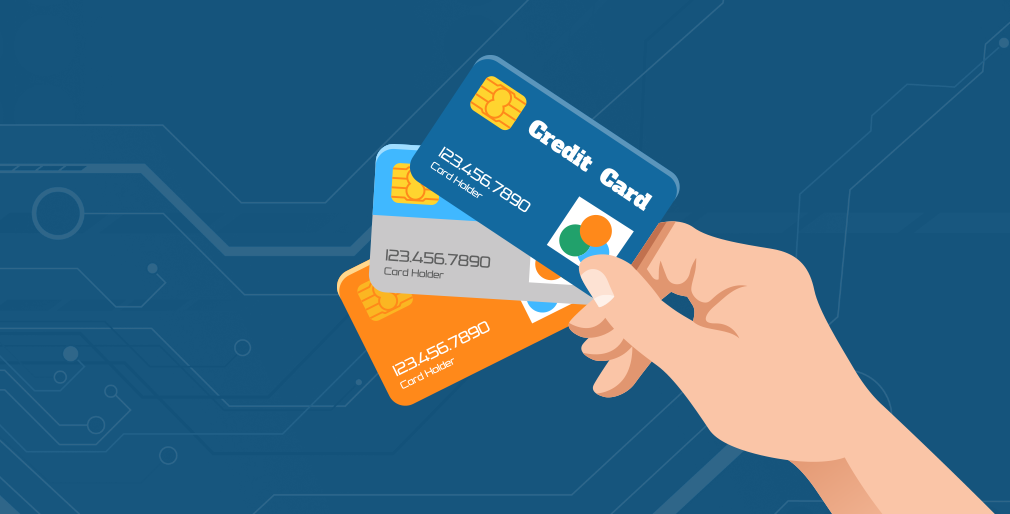When it comes to understanding credit card processing fees and rates, there is a lot of information to take in. It can be confusing to know what all of the different terms mean, and how they impact your business.
In this article, we will explain the most common credit card processing fees and rates, as well as provide examples of how they can impact your business.
Processing Fees
The processing fee is the amount that your merchant services provider charges you to process credit card transactions. This fee is typically a percentage of the transaction amount, and is also known as the interchange fee.
For example, if you process a $100 transaction, your processing fee would be around 2.5% ($2.50), if you have a rate of 1.90%.
This fee is usually split between the card issuer and your provider, so in this example, $1.25 would go to the card issuer and $0.75 would go to your provider ($2.50 * 50%). The processing fee is also sometimes called the swipe fee, because it’s typically charged when a card is physically swiped through a card reader.
Gateway Fees
The gateway fee is a separate fee that your merchant services provider may charge in order to connect your business to the payment processing network. This fee is usually a flat rate, and can range from $0.00 to $50.00 or more.
For example, if your provider charges a $25.00 gateway fee, your total processing costs for a $100 transaction would be $27.50 ($2.50 + $25.00).
Monthly Fees
Most merchant services providers also charge a monthly fee, which is typically a fixed amount or a percentage of your processing volume. This fee covers the cost of maintaining your account and providing customer support.
For example, if you are charged a $10.00 monthly fee and process $1,000 in transactions each month, your total processing costs would be $37.50 ($10.00 + $27.50).
Transaction Fees
Some providers also charge a transaction fee for each credit card transaction. This fee is typically a small amount, such as $0.10 or $0.25 per transaction.
For example, if you process 25 transactions in a month and are charged a $0.25 transaction fee for each, your total processing costs would be $6.25 ($0.25 * 25).
Acceptance Fees
Acceptance fees are another type of fee that some providers charge businesses. This fee is assessed when a business agrees to accept credit cards as a form of payment. The acceptance fee is usually a flat rate, and can range from $0.00 to $50.00 or more, depending on the provider.
For example, if you are charged a $25 acceptance fee and agree to accept credit cards as a method of payment, your total processing costs for that month would be $62.50 ($10 + $27.50 + $25).
Authorization Fees
Some providers also charge an authorization fee. This fee is assessed when a credit card is authorized for the transaction amount. If the transaction is declined, this fee is refunded to your business. An authorization fee can range from $0.00 to $50.00 or more, depending on the provider and industry type.
For example, if you are charged a $25 authorization fee and the transaction is declined, your business would be refunded $25.
Statement Fees
Finally, some providers also charge a statement fee. This fee is assessed each time you receive a statement from your provider. A statement fee can range from $0.00 to $10.00 or more, depending on the provider and industry type.
For example, if you are charged a $5 statement fee each month and receive four statements in that time period, your total processing costs would be $25 ($5 * 4).
Rates
The rate is the portion of your processing fee that you pay to your merchant services provider. This fee is typically a percentage of the transaction amount, and is also known as the interchange fee.
For example, if you process a $100 transaction, your processing fee would be around 2.5% ($2.50), if you have a rate of 1.90%.
This fee is usually split between the card issuer and your provider, so in this example, $1.25 would go to the card issuer and $0.75 would go to your provider ($2.50 * 50%). The processing fee is also sometimes called the swipe fee, because it’s typically charged when a card is physically swiped through a card reader.
Cash Discounts
Some providers also charge you a cash discount which is usually percentage up to 5%. This means that merchants who accept cash can get up to 5% off their rates. For example, if your rate is 1.95% and you have a cash discount of 3%, the effective rate for credit card transactions would be 1.82%.
Transaction Minimums and Maximums
Some providers will also charge you a transaction minimum. This amount is the lowest amount that your provider allows you to process for each transaction type (i.e., credit card, debit card, PIN debit). The minimum usually ranges from $0.00 to $50.00 or more.
Some providers will also charge you a transaction maximum. This is the highest amount that your provider allows you to process for each transaction type. The maximum usually ranges from $0.00 to $10,000.00 or more.
